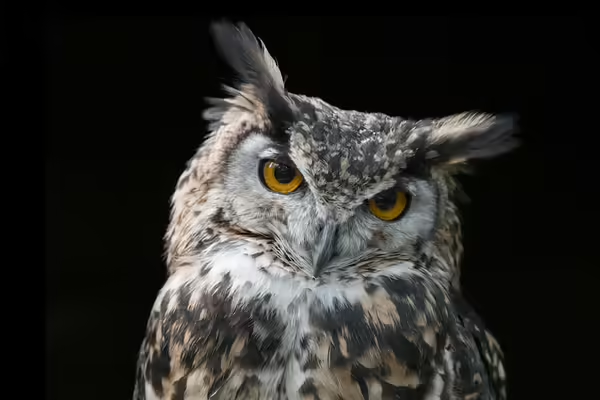
LIVINGSTON, Ill. – The 2024 calendar year has been a thriving and encouraging time at Fugate Woods with multiple educational events bringing the community together. The University of Illinois Extension Master Naturalists and Prairie Lands Foundation have led six events in 2024 already, and if you have not yet participated in one of these events, November 2 is your next opportunity!
On November 2, we invite you to an enchanting Night Owl Prowl. This event is free to the public and will take place from 5 to 7 p.m. To open the evening, local science educator Scott Saffer will read Owl Moon. Then, he will guide us on a hike through Fugate Woods where we will listen for owls. Owls are rarely seen during the day because of their great camouflage and because many species are nocturnal. During this special evening, Saffer will mimic the hoots and trills of our owl friends to help us hear them in the woods. The evening adventure will close with hot chocolate and cookies, but before you head out of the forest, remember to take a prepared owl pellet to dissect at home!
To register for the Night Owl Prowl, please visit https://extension.illinois.edu/lmw/events. Be sure to bring a flashlight and wear warm clothes! If you need a reasonable accommodation or have any questions, please get in touch with Alison Meanor at ameanor@illinois.edu or call our office at 815-842-1776. Early requests are strongly encouraged to allow sufficient time to meet your access needs.
University of Illinois Extension develops educational programs, extends knowledge, and builds partnerships to support people, communities, and their environments as part of the state's land-grant institution. Extension serves as the leading public outreach effort for University of Illinois Urbana-Champaign and the College of Agricultural, Consumer and Environmental Sciences in all 102 Illinois counties through a network of 27 multi-county units and over 700 staff statewide. Extension’s mission is responsive to eight strategic priorities — community, economy, environment, food and agriculture, health, partnerships, technology and discovery, and workforce excellence — that are served through six program areas — 4-H youth development, agriculture and agribusiness, community and economic development, family and consumer science, integrated health disparities, and natural resources, environment, and energy.